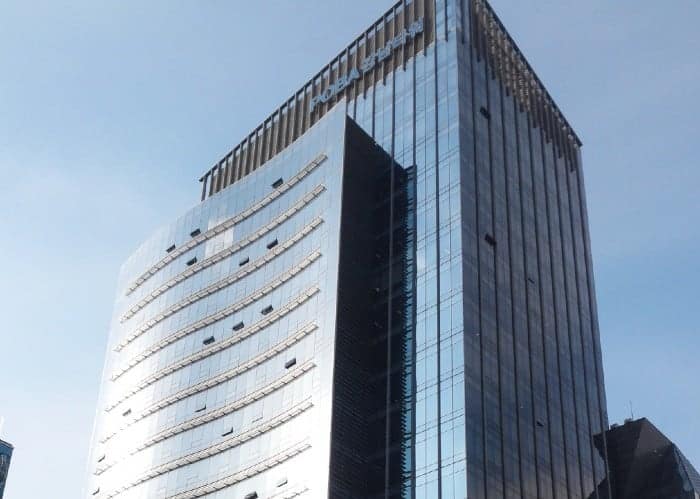
Deals like Mapletree and Mapletree North Asia Trust’s acquisition of The Pinnacle Gangnam helped Korea come out on top
Asia Pacific commercial property transactions fell to $26 billion in the third quarter as they tumbled 38 percent year-on-year, with the industrial segment showing resilience and South Korea standing out among key markets for its robust activity during the period.
The broader pullback was led by a slide in sales of asset portfolios, which fell 78 percent year-on-year in the quarter to $2.4 billion, a level last seen during the global financial crisis, according to a report released this week by Real Capital Analytics.
“The global pandemic continues to hamper dealmaking for a swathe of cross-border investors, and the clouded economic outlook in many markets still presents uncertainty that puts many investors on hold,” said David Green-Morgan, RCA’s managing director for Asia Pacific.
With travel bans and quarantine regimes prevening international investors from following through on many deals, RCA found local institutions gaining the upper hand, with the largest markets proving the most resilient. “Domestic players seem to hold the advantage at the moment, and the major markets with robust domestic investor bases — such as South Korea, Japan and China — are holding up better in the current environment.”
Korean Wave
South Korea’s stellar third quarter set it apart from regional peers. Commercial property sales in the country jumped 22 percent year-on-year in the period to $6.8 billion, including a record $5 billion in office sales. Retail also remained strong, with nine-month investment in the segment surpassing the total for all of 2019.

David Green-Morgan of RCA
Dealmaking momentum in South Korea was so strong that a $9.3 billion pipeline of deals had built up by the end of September, about one-third more than in the final quarter of 2019, RCA said.
Deal volume on the peninsula was helped along during the period by transactions such as Mapletree Investments teaming up with Mapletree North Asia Commercial Trust to purchase a The Pinnacle Gangnam in Seoul for KRW 452 billion (then $385.69 million). Also during the third quarter, Nuveen Real Estate picked up a logistics facility near Seoul for $122 million.
A bleaker picture emerged elsewhere in the region as COVID-19 fallout lingered. In mainland China, the region’s next most active market in the third quarter, commercial property sales totalled $5.2 billion, down 36 percent year-on-year. Transactions in APAC’s other big markets tapered off in the period, with Japan’s sales falling 62 percent year-on-year to $4.5 billion and Australia’s sagging 61 percent to $2.9 billion.
Hong Kong’s commercial property sales totalled $2.6 billion in the third quarter, down a mere 4 percent year-on-year. The sum was inflated, however, by the closing of a $1.5 billion megadeal: mainland insurer Ping An’s purchase of a 30 percent stake in Sun Hung Kai’s West Kowloon commercial development, and stands in comparison to a period in 2019 when Hong Kong was wracked by protests. Deal volume in the Asian financial hub during the first nine months of 2020 totalled $5.3 billion, falling 62 percent year-on-year in one of the region’s weaker showings.
Sales activity in Singapore contracted at the fastest rate of all the major APAC markets in the third quarter, plunging 86 percent year-on-year to $405 million. The city-state was also the worst-performing market for the year to date, with activity down 74 percent at $2.7 billion.
Winter Heats Up in North Asia
South Korea appears likely to continue to receive support from its substantial domestic investment base at a time of challenged cross-border investment, an advantage it shares with Japan and China. According to RCA’s analysis, commercial property investors have concentrated over two-thirds of their APAC investment in those three markets this year, a record share.
“The outlook for South Korea is looking brighter than some other major economies, with a bulging deal pipeline indicating that the third quarter won’t be just a one-off positive story,” Green-Morgan said. “Major investors have curtailed their spending overseas, which had been ratcheting higher prior to the pandemic.”
Green-Morgan’s prediction tallies with a deal completed this week by ARA Asset Management. After setting up a private fund backed by Korea’s NH Investment & Securities, along with other domestics investors, ARA led the $897 million purchase of Tower II in Seoul’s Parc1 complex, notching the largest deal so far this year, and one of the three largest ever in the country.
Industrial Takes Centre Stage
The industrial segment continues to buck the trend of double-digit sales declines plaguing other property types in APAC. For the first nine months of 2020, industrial real estate transactions totalled $19.9 billion, up 15 percent year-on-year. Third-quarter sales totalled $7.2 billion, essentially flat with year-earlier levels.
With the fourth quarter nearly half over, the volume of logistics deals seems set to continue, with Blackstone having announced this week that it is acquiring a warehouse facility in China’s Guangdong province from developer Guangzhou R&F for $1.1 billion. That deal ranks as the largest ever transaction of a single logistics property in mainland China.
APAC office transactions in the third quarter totalled $12.6 billion, down 38 percent year-on-year, while retail acquisitions totalled $3.5 billion, down 59 percent. Year-to-date sales were lower by similar percentages.
Despite its lacklustre third quarter, Japan remained the largest investment market in APAC for commercial property in 2020, with Tokyo the most active metro area this year. China, South Korea, Australia and Hong Kong rounded out the top five.
Leave a Reply